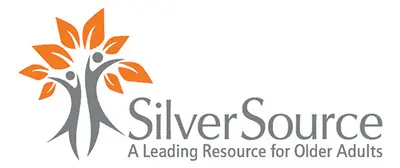Older Adults Lose $3 Billion a Year to Financial Scams

Have you ever been scammed? Scammers are often professionals who know how to get people to respond. Seniors are often targeted for many reasons;
• they aren’t as tech-savvy,
• they are more trusting,
• they can be lonely, and
• they may have large nest eggs.
Older adults lose an estimated $3 billion a year to financial scams. This is often devastating because they lose their life savings and don’t have years to recoup their losses. Regardless of age, we all need to be familiar with various types of schemes so we can report them and keep others from being victimized.
I almost fell victim to a scam last summer on Craigslist. I advertised a used “vintage” hunter green outdoor patio set which was in good condition. I received a quick response from someone who said they were interested and would pay the full price of $500 via certified check. They wanted me to stop posting the item and said they would buy it sight unseen. A few days later I received a certified check in the mail for $1800, not $500. The extra money was to cover the cost of a truck that would transport the furniture to them.
Now I saw major red flags and took the certified check to my local bank. They advised me to deposit the check and give it a week to clear. Meanwhile, my buyer was anxious to pick up the furniture. All I had to do was to pay the truck drivers $1300 when they arrived to get the furniture. With a little research, I found out this was a well-known scam as it would take a few days for the check to bounce. I sent one last text to my buyer telling her that I knew this was a scam and did not hear from her again. Guess What—no surprise that a few days later the bank told me the certified check was fraudulent.
Scams can take all forms and some of the most popular ones are;
- Imposters calling claiming to be the IRS, Social Security or Medicare or even a grandchild needing money,
- Requests for personal information to qualify for a current medical treatment like genetic testing or Covid-19 vaccines,
- Your personal computer is compromised by a hacker and you have to pay them to fix it,
- An online romance is initiated and the person asks for money for travel,
- A repair person is in the neighborhood and offers a great deal for an unneeded repair or gets paid up front and never comes back.
If you suspect that you have been targeted for a scam, what should you do? Here are some tips to avoid being taken advantage of by scammers.
• Tell someone you trust about any suspicious calls or interactions you have had with a possible scammer.
• Never agree to hire someone who stops by your home or cold calls you out of the blue. Ask for contact information so you can get back to them.
• Don’t let someone pressure you into making a decision immediately to get an offer or a prize.
• Research companies, offers, or claims of debts you owe to make sure they are legitimate.
• Confide in a trusted person about your finances and run requests for personal and financial information by them.
• Go to authorities like the police, banks, financial institutions, Adult Protective Services* or the Federal Trade Commission with your complaints.
You worked hard for your money and you need to hold onto it. Be aware of current scams by signing up for AARP scam alerts.
We hope this information will help you protect yourself and your loved ones from being taken advantage of by professional con artists.
And remember — if something sounds too good to be true then it probably is.
Resources you can trust include:
As always, SilverSource welcomes your calls with concerns about scams and fraud. Our staff is experienced with fraud and works with local authorities and law enforcement to assist our clients. Call to speak to a staff member: 203.324.6584
CT Elder Justice Hotline for Elder Abuse and Fraud
The hotline can be reached at 1-860-808-5555. You may also access information about the hotline, resources, and an online complaint portal here.
The Elder Justice Hotline can answer your questions, connect you with trained investigators, and help you access aid, support, and justice, The Consumer Assistance Unit of the Office of the Attorney General William Tong, staffs the hotline and refers matters as appropriate to agencies across state government including:
• CT Department of Banking
• CT Department of Consumer Protection
• CT Department of Mental Health and Addiction Services
• CT Department of Public Health
• CT Department of Social Services – Protective Services for the Elderly
• CT Long-Term Care Ombudsman
• CT Police Training Academy
• CT Department of Emergency Services and Public Protection
• State Unit on Aging, Department of Aging and Disability Services
CT State Protective Services for the Elderly
If you suspect or believe that an elderly person is a victim of abuse, neglect (including self-neglect) exploitation, or abandonment contact the Protective Service Intake Lines listed below:
- During Business Hours: In-State: 1-888-385-4225 (Toll Free)
- Out of State: 1-800-203-1234 (Toll Free)
- After Hour Emergencies: In-State: 2-1-1 (Toll Free)
AARP: Fraud and Scam hotline – 877-908-3360. Toll-free service is available Monday through Friday, 7 a.m. to 11 p.m. ET You can also sign up for AARP Email Alerts.
*To obtain the contact information for Adult Protective Services in your area, call the Eldercare Locator, a government-sponsored national resource line, at 1-800-677-1116, or visit their website at: https://eldercare.acl.gov.
Founded in 1908, SilverSource is an independent, nonprofit organization that provides information, financial support, and other critical services that save lives, reduce homelessness among seniors and improves the quality of life for people over age 60 while serving as a resource center and referral source for older adults and their families in lower Fairfield County.
Meleisa Holek
Program Manager
203.324.6584

